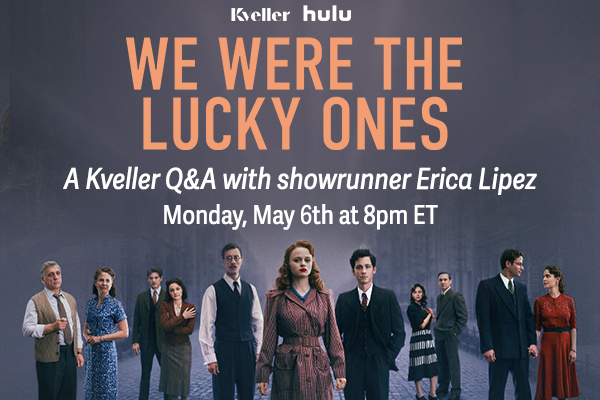The following piece is by the husband of Kveller’s contributing editor, Carla Naumburg. Carla has written about her experience with IVF in the past, so we asked Josh for the man’s perspective.
When I was asked to write about in-vitro fertilization (IVF) for Kveller’s Dude Week, I wasn’t sure they’d picked the right person. My recollections of the experience were sort of boring and the entire experience–both times–was overshadowed by the births of our two wonderful girls (now 3.5 and 1.5). It took my wife, Carla, to remind me that our experience was far from normal and that IVF is always easier for the male partner.
IVF is an incredibly complex (and, for the woman, invasive) process. It involves months of hormones, injections, tests, procedures, and the highly skilled hands of numerous medical professionals. It also requires a lot of luck.
Our first stroke of luck was living in Massachusetts, one of the fifteen states that mandate some level of coverage for infertility treatment. Without insurance coverage, the average cost for one round of IVF seems to be over $15,000. Alternate treatments such as intrauterine insemination (IUI), with a much lower success rate, can still cost well over $5,000.
Our second stroke of luck was that I was most likely the troublesome partner. My lazy (or uncooperative, or inadequate) sperm could always be collected, cleansed, and concentrated–a deficiency on my side is much more easily remedied. Did my ego get bruised? Sure. But, eyes on the prize, fellas’: you’re trying to get a baby, not keep score.
Our third stroke of luck was finding a reproductive endocrinologist who knew exactly what we wanted. We solicited a second opinion from a family friend (also an R.E.) who suggested that we start with something less invasive or extreme. She didn’t think we’d be very likely to get pregnant, she just thought we might want to “ease into the experience.” Thank goodness our initial doctor understood what we wanted: a healthy baby ASAP. She also knew what we needed and talked us out of inserting two embryos when we momentarily thought twins were a good idea. And, for the most part, everyone we dealt with was equally thoughtful and competent.
My personal stroke of luck was being the husband. No matter how unpleasant it might have been for me to deliver the injections, it was my wife’s lower back being impaled on a two-inch skewer every night (Carla had at least one injection every day for at least eight months). It was my wife who had to endure the numerous transvaginal ultrasounds (when a woman says requiring one to have a legal abortion borders on sexual assault, I believe her). And even a healthy pregnancy and delivery is no walk in the park.
Thinking back, IVF wasn’t easy but it wasn’t terrible. And in return we ended up with the two most wonderful little girls in the whole world, the best luck of all. But infertility isn’t uncommon and I’ve read estimates suggesting as many as one in seven couples look to reproductive assistance to get pregnant. Despite this, infertility isn’t often discussed, particularly for couples as young as we were. This is why Carla chose to publicly discuss our journey and why I’m happy to write this short post. The Torah enjoins us to be fruitful and multiply. In the end, we’re lucky to live in a place and a time when we can fulfill this most basic Jewish value.







